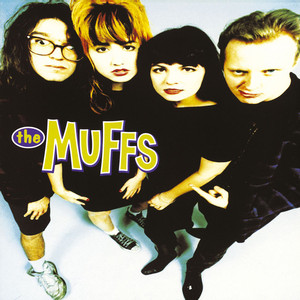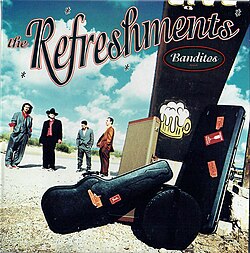 “Common People” by Pulp isn’t just a song—it’s an anthem, a cultural landmark, and a razor-sharp piece of social commentary disguised as a dancefloor filler. Released in 1995 during the height of Britpop, it quickly rose from an album track to one of the defining songs of its era, and today, it continues to resonate with listeners worldwide. Pulp, led by the lanky, charismatic Jarvis Cocker, crafted something that was both deeply personal and universally relatable, and in doing so, they captured the essence of class struggle, aspiration, and irony in the 1990s United Kingdom. “Common People” has endured not just because it was catchy, but because it struck a nerve with audiences who saw themselves reflected in the lyrics, the drama, and the attitude.
“Common People” by Pulp isn’t just a song—it’s an anthem, a cultural landmark, and a razor-sharp piece of social commentary disguised as a dancefloor filler. Released in 1995 during the height of Britpop, it quickly rose from an album track to one of the defining songs of its era, and today, it continues to resonate with listeners worldwide. Pulp, led by the lanky, charismatic Jarvis Cocker, crafted something that was both deeply personal and universally relatable, and in doing so, they captured the essence of class struggle, aspiration, and irony in the 1990s United Kingdom. “Common People” has endured not just because it was catchy, but because it struck a nerve with audiences who saw themselves reflected in the lyrics, the drama, and the attitude.
At its core, “Common People” is about class disparity, cultural tourism, and the uncomfortable truth that some experiences can be visited but not authentically lived. Jarvis Cocker, with his keen observational wit and knack for storytelling, wrote the song after an encounter with a Greek art student who allegedly claimed she wanted to “live like common people.” The phrase stuck in Cocker’s mind, and from it emerged one of the most scathing yet entertaining dissections of privilege ever committed to music. What could have been a sneering or angry rant turned into a witty, biting narrative filled with empathy, sarcasm, and danceable grooves. That balance of venom and humor, anchored in sharp lyricism, is what makes the song timeless.
Musically, “Common People” is a masterpiece of structure and momentum. Beginning with a hushed and almost spoken-word introduction, it gradually builds layer upon layer, rising in intensity until it bursts into a euphoric explosion of sound. The keyboards shimmer, the guitars strike with rhythmic precision, and the bassline provides the relentless pulse that drives the track forward. Nick Banks’ drumming propels the song with a steady urgency, while Candida Doyle’s keyboards give it a sense of grandeur, bridging the gap between Britpop swagger and something more cinematic. By the time the chorus arrives, it feels like a chant, an anthem sung not just by Cocker but by everyone who ever felt dismissed, ignored, or used as a backdrop to someone else’s “experience.”
Lyrically, it’s brilliant in its clarity and wit. Cocker describes the student’s desire to live among “common people” with a mixture of disdain and amusement, pointing out the inherent absurdity of her request. She might cut her hair, shop at supermarkets, or sleep with locals, but she’ll never truly grasp what it means to live without privilege because she has a safety net. She will never feel the suffocating lack of choice, the grind of poverty, or the despair of being stuck without escape. For her, it’s performance art; for the people she imitates, it’s life. This juxtaposition is hammered home in the chorus, which is delivered with both venom and jubilation, urging her to “sing along with the common people” but always with the reminder that she’ll never actually be one of them. It’s a lyrical knife wrapped in pop brilliance.
Part of what makes “Common People” so special is how it transcended its immediate context. While rooted in the class system of Britain, its message is global. The idea of privileged individuals dipping their toes into working-class culture, appropriating experiences for aesthetics or personal amusement, is not unique to the UK. In fact, the song remains relevant because this phenomenon continues in different forms across the world. Whether it’s wealthy kids slumming it for fun, cultural appropriation in art and fashion, or influencers curating “authentic” experiences for their followers, the dynamics Cocker described are still alive today. “Common People” thus becomes more than just a Britpop anthem—it’s a timeless critique of authenticity, privilege, and performance.
The performance of the song is equally crucial to its legacy. Jarvis Cocker delivers every line with theatrical flair, half-speaking, half-singing, his voice dripping with irony. His stage presence amplified this effect, as he would often contort, strut, and gesture in ways that made the sarcasm palpable. Live performances of “Common People” became legendary, with audiences chanting along to every word as if it were gospel. It wasn’t just a song you listened to; it was one you experienced in a communal rush of energy. The song’s length, at nearly six minutes, allowed it to evolve dynamically, keeping the crowd engaged until the very last note.
The timing of its release was also pivotal. By 1995, Britpop was at its peak, with bands like Oasis, Blur, and Suede dominating the charts. While much of Britpop reveled in swagger, nostalgia, or youthful hedonism, Pulp brought something different: a sharp social awareness and a literary edge. “Common People” stood apart because it wasn’t just about fun or romance; it was about something bigger. It spoke to real experiences of class inequality in Britain at a time when the country was still grappling with the aftershocks of Thatcherism. For many listeners, the song articulated feelings they had always known but never heard reflected in popular music. For others, it was a wake-up call. Either way, it resonated deeply.
Critics and fans alike recognized its brilliance immediately. “Common People” became Pulp’s biggest hit, reaching number two on the UK Singles Chart and remaining one of the defining tracks of the decade. It earned the band critical acclaim and solidified their place as one of Britpop’s most important voices. More importantly, it became a cultural touchstone. Decades later, it still appears on lists of the greatest songs of all time, with many critics citing it as one of the best British songs ever written. Its enduring popularity is a testament to both its craftsmanship and its message.
The song’s influence extended far beyond Pulp’s own career. Artists across genres have praised and covered “Common People.” Perhaps most famously, William Shatner delivered a spoken-word version of the song in 2004, with Ben Folds producing. While initially surprising, the cover highlighted the song’s adaptability and the power of its lyrics. Even in Shatner’s unconventional performance, the satire and bite of the words remained intact. Countless other musicians and fans have embraced the song, keeping it alive across generations.
For Jarvis Cocker, “Common People” became both a triumph and a burden. On one hand, it made Pulp global stars and brought their unique vision to millions. On the other hand, it was such a defining moment that it overshadowed much of their other work. Cocker himself has reflected on the song’s legacy, sometimes with pride and sometimes with ambivalence. Yet even he acknowledges that its staying power comes from the fact that it addresses something real and enduring in human society.
Another reason “Common People” continues to thrive is its dual identity. On one hand, it’s a fierce critique of privilege and class. On the other, it’s a joyous, infectious, danceable anthem. That combination makes it versatile. You can hear it blasting at a club, where people scream along without necessarily thinking about the lyrics, and you can hear it in more reflective settings, where its social commentary takes center stage. It works on multiple levels, which is part of its genius.
For listeners today, “Common People” remains as vital as it was in 1995. In a world where inequality persists, where culture is commodified and experiences are curated, the song’s relevance hasn’t faded. In fact, it may be more poignant now than ever. Younger generations, navigating a landscape of gig economies, rising living costs, and social media posturing, can find in it both an anthem and a critique. It’s a song that makes you want to dance and think at the same time, which is a rare and powerful combination.
Ultimately, “Common People” by Pulp endures because it’s more than just a catchy tune. It’s a story, a critique, and an experience rolled into one. Jarvis Cocker and his bandmates created something that captured a moment in time but also spoke to timeless truths. It is witty, biting, joyous, and tragic all at once. It laughs at privilege while empathizing with the realities of life without it. It skewers pretension while celebrating authenticity. And it does all this while making you want to get up and move. That’s the magic of “Common People,” and that’s why it continues to be one of the greatest songs ever written.


